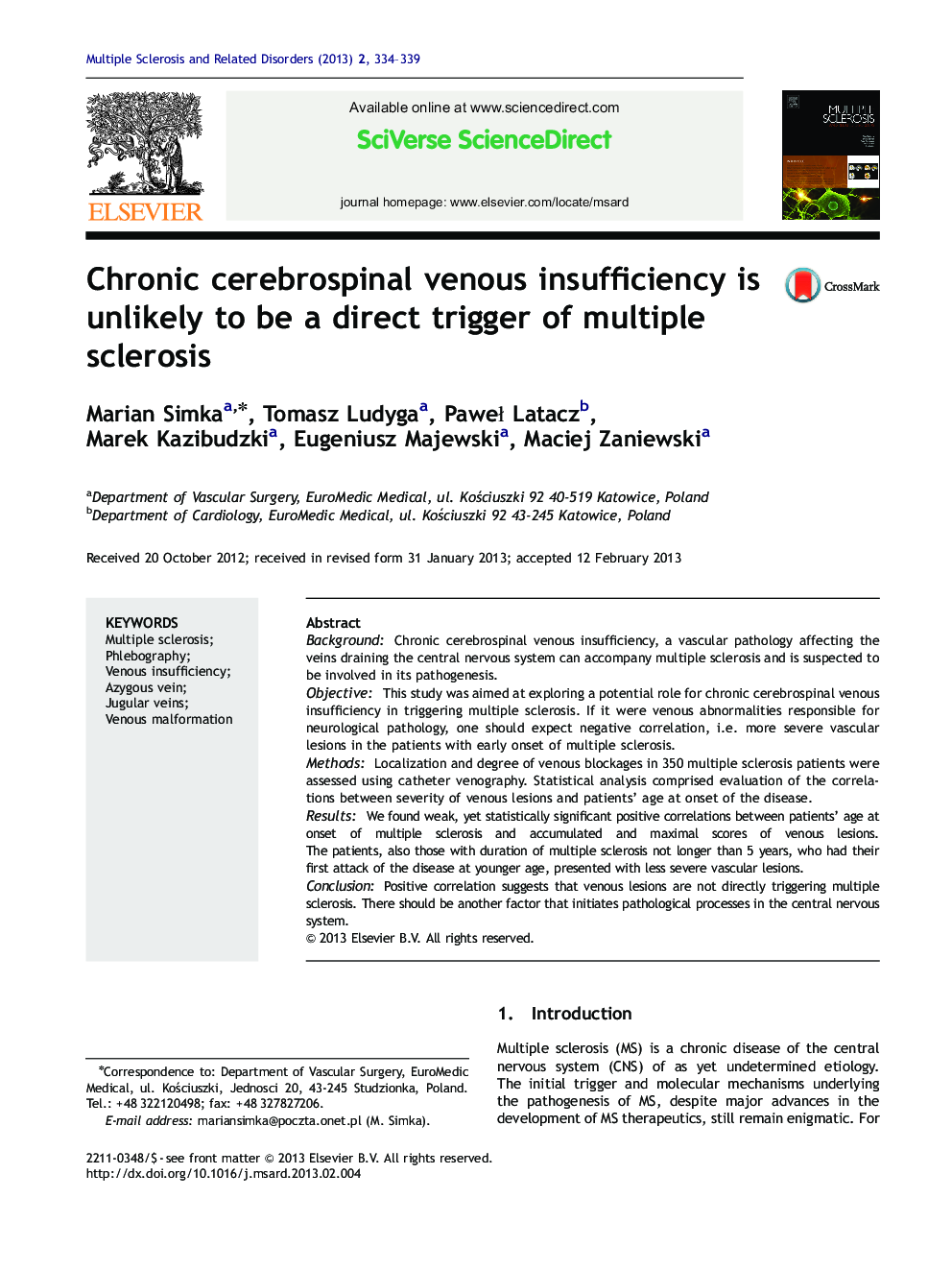| Article ID | Journal | Published Year | Pages | File Type |
|---|---|---|---|---|
| 5912733 | Multiple Sclerosis and Related Disorders | 2013 | 6 Pages |
BackgroundChronic cerebrospinal venous insufficiency, a vascular pathology affecting the veins draining the central nervous system can accompany multiple sclerosis and is suspected to be involved in its pathogenesis.ObjectiveThis study was aimed at exploring a potential role for chronic cerebrospinal venous insufficiency in triggering multiple sclerosis. If it were venous abnormalities responsible for neurological pathology, one should expect negative correlation, i.e. more severe vascular lesions in the patients with early onset of multiple sclerosis.MethodsLocalization and degree of venous blockages in 350 multiple sclerosis patients were assessed using catheter venography. Statistical analysis comprised evaluation of the correlations between severity of venous lesions and patients' age at onset of the disease.ResultsWe found weak, yet statistically significant positive correlations between patients' age at onset of multiple sclerosis and accumulated and maximal scores of venous lesions. The patients, also those with duration of multiple sclerosis not longer than 5 years, who had their first attack of the disease at younger age, presented with less severe vascular lesions.ConclusionPositive correlation suggests that venous lesions are not directly triggering multiple sclerosis. There should be another factor that initiates pathological processes in the central nervous system.
⺠This study was aimed at evaluation the role of CCSVI in triggering MS. ⺠Statistical analysis has revealed that CCSVI cannot be a direct trigger of MS. ⺠There should be another factor that initiates pathological process in the brain.
